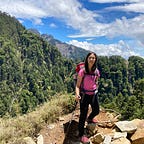Traditional French Cuisine: The Procope
Café Procope is among one of the oldest restaurants in Paris–established in 1686 and among one of the first cafes to serve the trending beverage of the time: timeless coffee. As I stepped into the restaurant, the ambience reflected traces of the old day’s flair: huge chandeliers from above, the characteristic red walls with wooden interior design, and marble carpeted flooring. Theses were items that became standards of traditional European cafes back in the old days, and I took in the decorations with an appreciation of the history and ambience.
“The Procope has always been a place for exchange, culture, and cuisine.”, as it attracted intellectuals, artists, politicians, and people from all walks of life back in the 17th and 18th Century. With its close proximity to the Comedie Francaise, it was a stop off point for intellectuals and artists. In the 18th Century, it became a meeting place for intellectual establishment, and philosophers, politicians, and intellectuals such as Volataire, Benjamin Frankline, and Thomas Jefferson frequented the café and made it a cultural and political hotspot. We could fine carvings, paintings, letters, and manuscripts of these traces of the past, commemorating the influential customers that heightened the café to its historical height today.
I enjoyed dining in such a rich historical and cultural setting, and the traditional menus served from 1686 added to gastronomical novelty. With the 5 of us dining together, we tasted a variety of traditional French cuisine: veal, chicken fricassee, duck breast, served with an “exchange” of cultural experiences, just as how intellectuals a few hundred years ago had their “scandal-gossip” trades haha. Jennifer, Jessica, and Yushan were little nomads who has pursued their studies in the US, and from conversations I observed one thing in common: the independent search for self-identity, the yearning for acceptance and integration, and the struggles of adapting in a new environment all shaped distinct personal stories.
Each individual has a story to tell, and those who left Taiwan early and navigated independently for university studies mostly experienced initial cultural disintegration: we all came back the first semester with scars and struggles (sometimes not apparent to we ourselves, but that path of learning and integration reflected crystal clear in retrospection). We then adapted, searched for our personal equilibrium, and established our self-identity. Cultural integration, finding our true calling, and establishing our personal values is an ongoing process, and we are exposed to new opportunities and cultural perspectives every day. We cherish these brief exchanges, the four of us meeting in a wonderful setting: in the Procope who has welcomed many travelers exchanging their stories and intellect since the 17th Century. I’m grateful to these reflections and exchange of perspective, as through the eyes of these global nomads I glimpse a partial reflection of another culture in time, learning from individual experiences, and contemplating on my own as I share and reflect.
